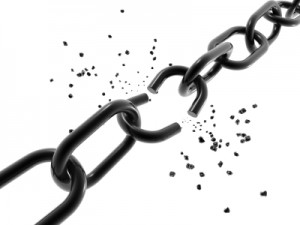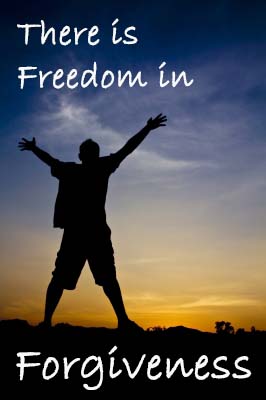Podcast: Play in new window | Download
“Darkness cannot drive out darkness; only light can do that. Hate cannot drive out hate; only love can do that.” Martin Luther King, Jr.*
“The weak can never forgive. Forgiveness is the attribute of the strong.” Mahatma Gandhi**
Many offences in life can and should be easily dismissed. Today, however, we are talking about the deep hurts. The deep wounds that significantly alter our lives. Some wounds even threaten to crush us from the inside out. It is these situations that call for a deliberate forgiveness process.
Forgiveness is possible! (See last week’s show: Forgiving the Unforgivable.) It takes great strengths and courage to enter into a forgiveness process for deep wounds.
Before we begin:
- Forgetting is not forgiveness.
- Remembering is not unforgiveness.
- Forgiveness is a process.
At the Hope and Restoration Team (HART) we use an acronym to help facilitate the forgiveness healing process. R.A.F.T.
- Recognize
- Accept
- Forego
- Trust
Recognize:
We can start with recognizing the wrong that has been done AND the impact it is having on our life. What has been the result of the hurt, violation, betrayal, etc.? How have you changed as a result of those events?
Why? Because we need to be able to deal with the REALITY of what happened to us in order to REALLY forgive.
Example: I was having a post traumatic response when interacting with a particular person. Fight and flight was kicking in even though there was not perceivable danger. After some reflection I realized that this person exhibited the same incompetents as someone who nearly got me killed. After recognizing this I was able to deal with that event constructively.
Accept:
It is one thing to recognize what has happened and how it has impacted and changed our lives. It is yet a deeper thing to accept this as our reality. These tragedies are part of how we are right now. They do not define the totality of who we are; but they are part of who we are and who we are becoming.
Due to the wrong actions of others my lungs were severely damaged. I live with this reality every day. Even after dealing with forgiving those involved in bringing this devastation into my life I have to live with these physical problems.
Forego:
Once we know and accept what needs to be forgiven we then forgoing payback, vengeance, and retaliation is part of the forgiving process. This does not meant that justice will not take place. It does mean that we let go of being the executor of that justice.
In this step we let go of any demand for payment or payback for the wrong suffered. It does not mean we will let the offender continue to hurt or damage us.
Consider the idea of a monetary debt. Someone borrows $20 dollars and promises to pay you back next week. But instead the next week they come back and borrow $20 more. This goes on for a few weeks and before you know it they have racked up a considerable sum.
At some point you decide to forgo demanding repayment for past debt. But that does not mean you allow them to accrue more debt. You say, “Your debt is forgiven. But in order for trust to be restored true change (in your life) must take place.”
Forgiving the debt is not forgetting what caused the debt. It is, however, not demanding payment for that past debt. Trust needs to be established over time with evidence to demonstrate change (repentance).
Trust:
By trust we are not here talking about trusting the one (group) that has wronged us. This should be a goal and our desire. However, for reconciliation to take place and trust to be restored repentance and transformation must take place.
For me the trust aspect is about trusting God to take care of me. It is about entrusting the process to the One who is greater than I. Trust in a God how is just, merciful and loving in ways I can only begin to comprehend. Trust in God that no matter what the other may choose to do or not do that God will provide, care for and supply all my needs.
* http://www.brainyquote.com/quotes/quotes/m/martinluth101472.html#8Ke6Q2VSXC4gyPk0.99
** http://www.brainyquote.com/quotes/quotes/m/mahatmagan121411.html#PhXxeQWq7lUWqJom.99

